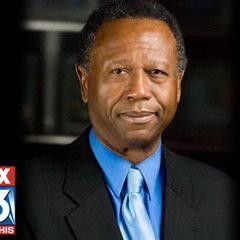Jack McCoy, where are you when we really need you?

Jack McCoy was the fictional hard-driving executive assistant district attorney who stopped at nothing in his quest to put felons behind bars in the iconic television series Law and Order. As brilliantly played by actor Sam Waterson, McCoy was often arrogant, overbearing, and idealistic, but always a passionate advocate for justice. He reluctantly plea-bargained in some cases, but only if it led to the eventual conviction of someone higher up the criminal food chain. Of course, since the show was described as a “police procedural legal drama,” everything from arrest to conviction was usually neatly wrapped up in one pulse-pounding hour.
As a reporter, I’ve covered my share of criminal cases and, unfortunately, in the real world of establishing law and order, the gap between the time of arrest and conviction can be interminable. It can stretch into painful years waiting for justice — both for the accused and the families of their alleged victims. The supposed tenet that all accused have — the legal right to a speedy trial — is a myth. The justice system, not just in Memphis but across the country, is backlogged with cases. Protracted incarcerations and trials cost taxpayers millions.
It’s against this backdrop of three high-profile violent incidents — the shooting deaths of 15-year-old Cateria Stokes and 7-year-old Kirsten Williams and a mob attack at a Midtown gas station on a man trying to help a frightened woman into her car — brought outcries of disgust and calls for action from nearly all sectors of Memphis. The arrests of three men in Williams’ murder focused an intense scrutiny on just how deep the problems of gangs and criminal recidivism continue to erode our public safety. The extensive rap sheet of 21-year-old Jordan Clayton drew special attention to the fact that even though he had previously pled guilty to aggravated assault and robbery charges, he served just over six months in jail for crimes for which he was sentenced to a collective total of four years.
As frustrated District Attorney General Amy Weirich told me, Clayton would have been behind bars, if the victim of an aggravated robbery, where Clayton was a prime suspect, hadn’t told a different story at a preliminary hearing than the one he originally told police and prosecutors. Instead, Clayton received a lesser charge and soon returned to the streets.
So far, nine teenagers have been arrested and charged with aggravated riot in connection with the BP gas station mob attack against Memphian Orrden Williams. First-term General Sessions Judge Gerald Skahan drew public criticism for lowering the $100,000 bonds leveled against some of the suspects to $5,000. Skahan said the initial bonds set were “unjustly high.” Skahan also stipulated that the Northwest Prep Academy students involved must return to classes, adhere to a 6 p.m. curfew, and stay away from the gas station. It’s estimated by Memphis police that as many as 50 young people participated in the attack. Their investigation continues.
So as I recently watched another of the countless reruns of Law and Order, I asked myself, “WWJD.” What would Jack do? My guess is he’d wholeheartedly share MPD Director Toney Armstrong’s on-target assessment that “guns in the hands of youth are a recipe for disaster.”
In reality, the Tennessee General Assembly’s penchant for easing gun restrictions only complicates efforts to stop that access. I suspect McCoy would have used the bully pulpit of his office to rail against that legislation, and he probably would have used every prosecutorial weapon at his disposal to go after illegal dealers of weapons, gang members, convicted felons in possession of guns, and would have argued for tougher sentencing after every conviction.
Just as in real life, the fictional McCoy encountered some of the legal restrictions that bind the hands of police, prosecutors, and the judiciary. But it never seemed to stop him from doing what he felt was the right thing to do. He pushed the envelope and encouraged his fellow prosecutors to approach their jobs with the same passion for seeking justice. McCoy didn’t win every case, but he wasn’t afraid to do all in his power to get criminals off the streets and to vigorously fight for the rights of victims and their families. Fiction is created to entertain us. But in these perilous times, we need to find inspiration wherever we can find it.